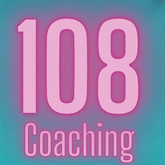Think of interviewing as an open book, oral exam. You can bring your answers with you to the conversation. And it really is a conversation! You are learning about the company and they are learning about you. Also, interviewers WANT you to do well! They are rooting for you because they already know you can do the job (that’s why you have the interview!) They are looking to hire the position as soon as possible, and with the right preparation, you can make this an easy decision for them.
Interviewers are looking for you to provide real, concrete examples of how you demonstrated the skills and experience they are seeking for the position. This is because the goal of behavioral interviewing questions (ex. “Tell me about a time when….”, “Provide for me an example of….”) are to measure your past performances to predict future behavior.
Many of us focus on what questions the interviewer may ask. While this is good to review, we cannot predict what questions we will receive. Therefore, focus on the answers, your stories of accomplishments, and rehearse them. In the interview, you will be prepared to have a conversation and articulate your skills and experience. We aren’t making up answers on the spot - a prepared candidate already knows their speaking points going into an interview.
Your objective, as the candidate, is to come to the interview prepared with many examples of how you demonstrated the transferable skills and experience for the position that you are applying for.
To keep your thoughts organized, there is a method that helps you prepare ahead of time.
You can reverse engineer your interview by using the STAR method: Situation, Task, Action, Result.
- Situation - project name/title, or the context of an experience (who, when)
- Task - goals/objectives of the project/experience (why)
- Action - tools/technology/skills/methods (how)
- Result - the outcome (quantitative) increased/decreased/percentages/result (what)
STAR Example:
I recently completed a capstone project entitled (title) through (name of program/school). The goals were to (the purpose of the project). I completed this by (what technology did you use, your methodology, how this was accomplished). As a result, (what was the outcome of the project - use quantifiable information to showcase your results).
You should aim to create at least 10 STAR examples BEFORE your interviews. Some examples can be one of your capstone projects, team experiences, mini-projects, collaborations, successes, etc.
Need help brainstorming? Write a list down of 20 skills you have: personal, professional, technical (i.e. creative, communication, Python, etc.) Then, write one sentence of a time when you demonstrated each skill. Now you have 20 skills and 20 stories about when and how you demonstrated them. These can serve as inspiration when creating your new STAR examples.
Using this method, you’ll surely come to your interviews prepared with stories of accomplishments, and watch your interviews shine!

Leave a comment